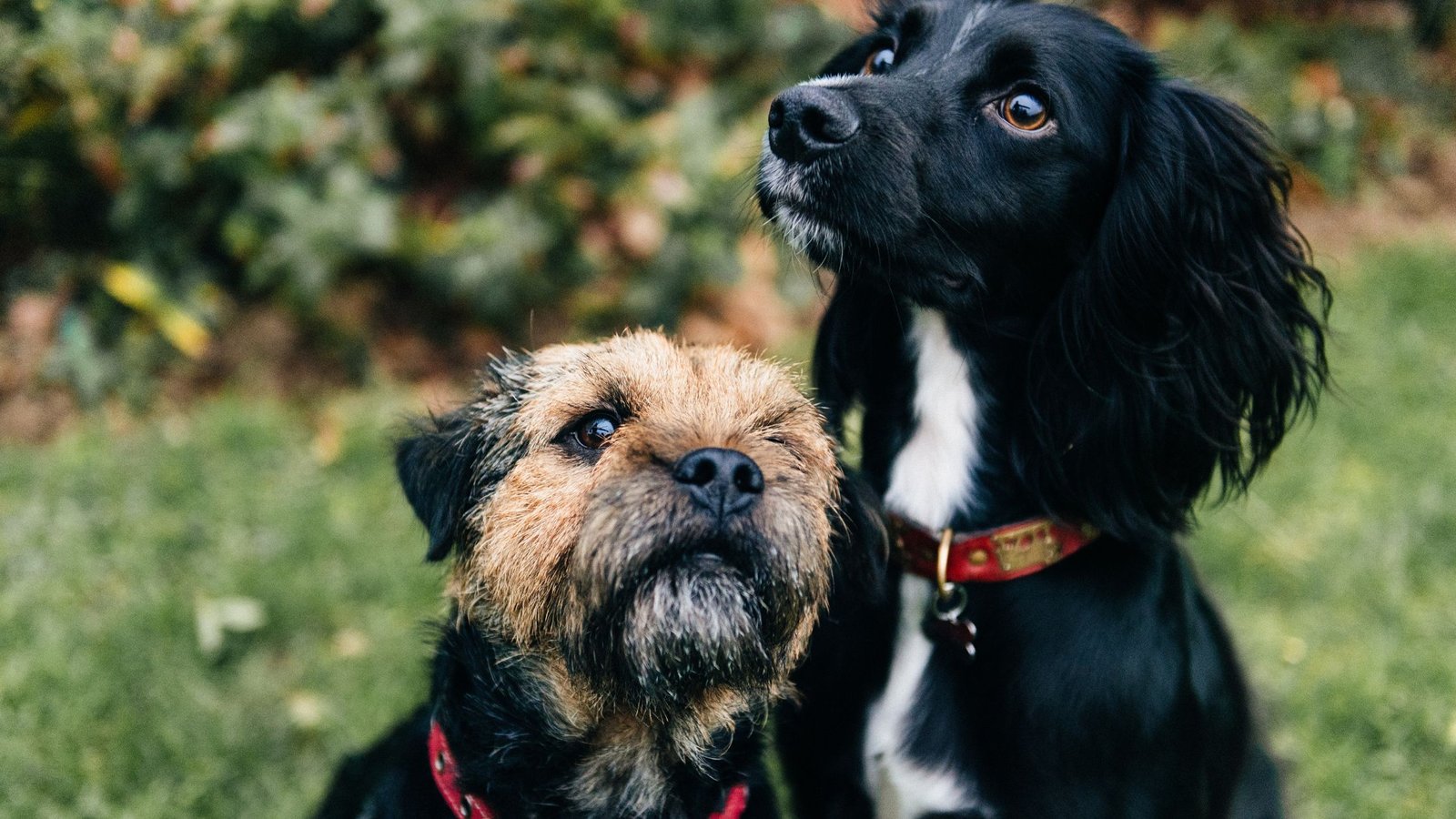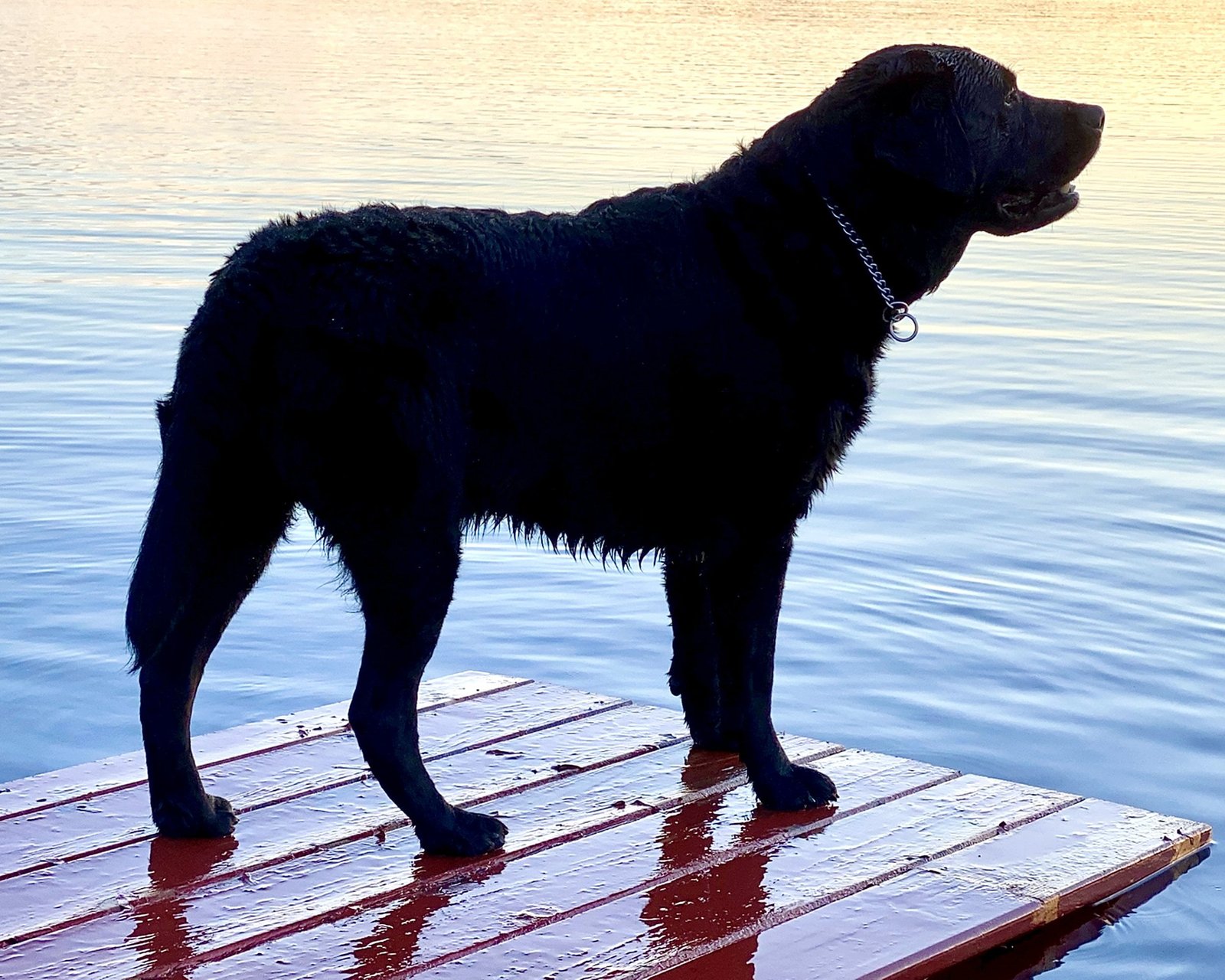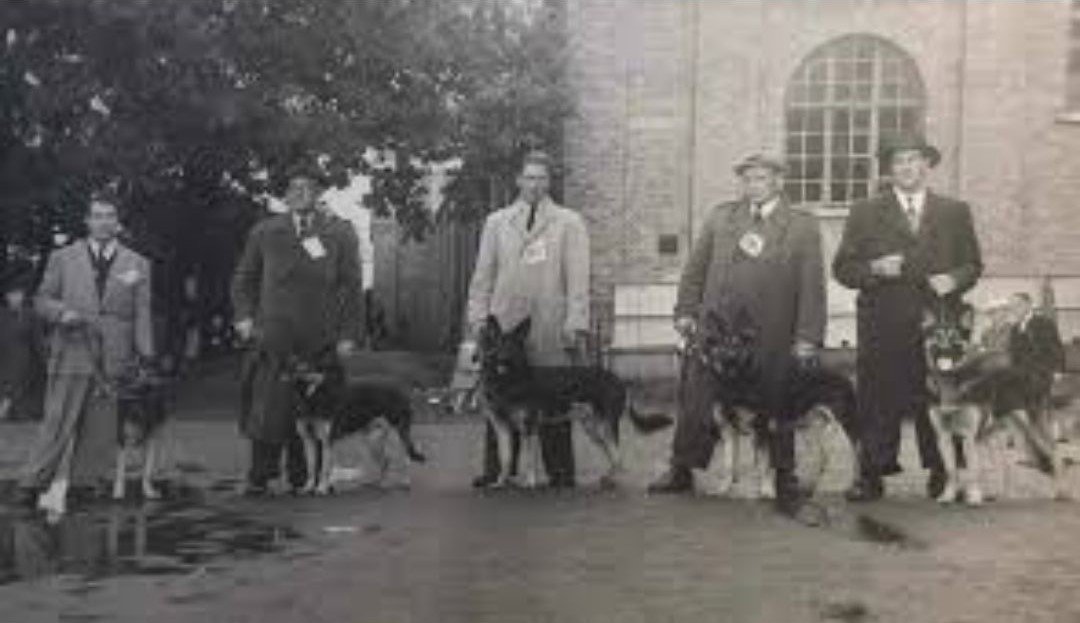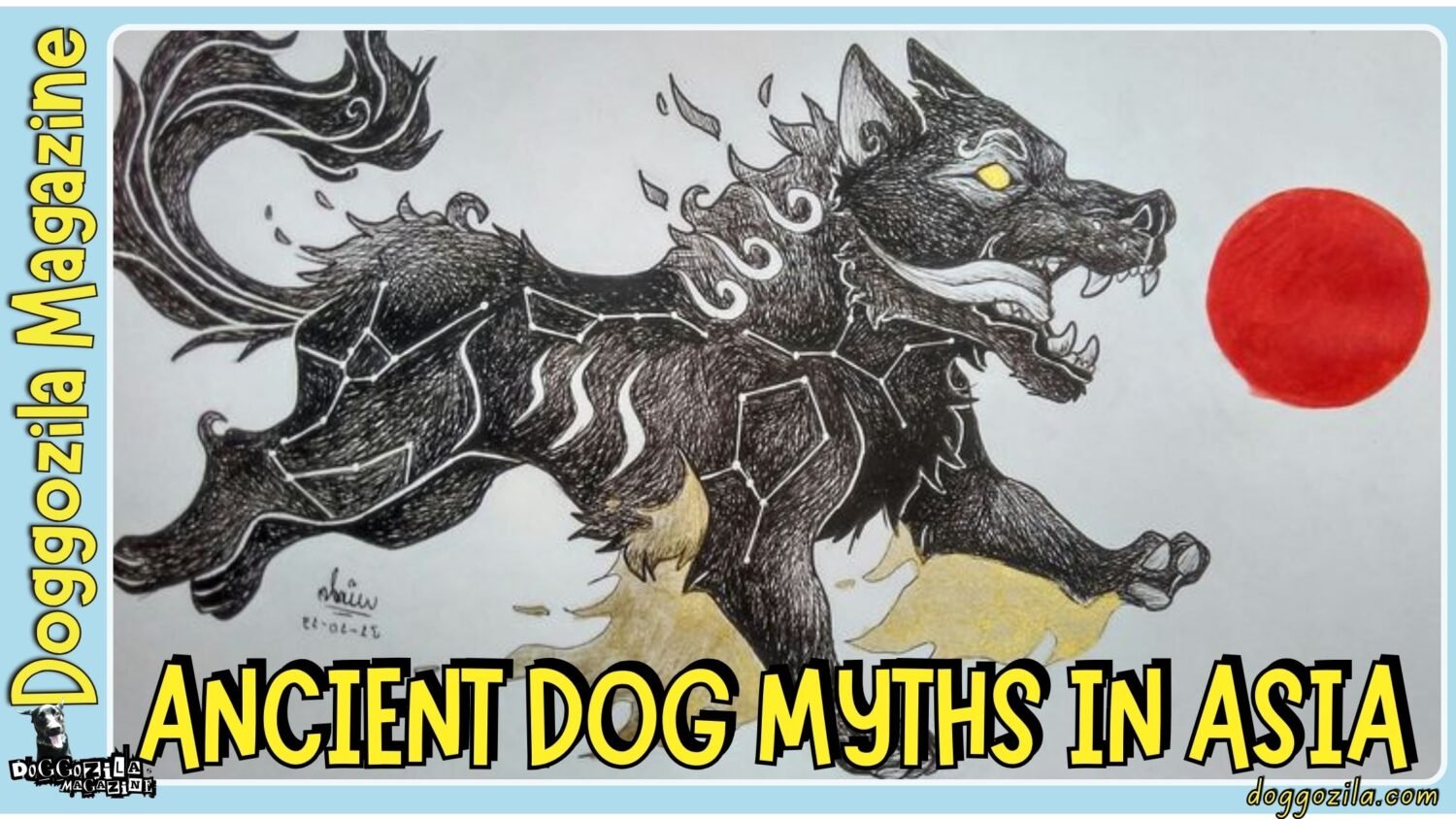Dogs are more than just pets. They are companions, friends, and family members. Dogs have been with humans for thousands of years, and they have influenced our history, culture, and society in many ways. In this article, we will explore how dogs change the human life!

DOGS CHANGE THE HUMAN LIFE BY PROVIDING SECURITY AND PROTECTION
Dogs have been used for hunting, herding, guarding, and military purposes since ancient times. They have helped us survive in harsh environments, fend off predators and enemies, and find food and resources. They have also been trained to assist people with disabilities, such as guide dogs for the blind, service dogs for the deaf, and therapy dogs for mentally ill people. Read more how dogs change the human life.
Dogs can also detect diseases, such as cancer and diabetes,
just by smelling changes in our body chemistry.
Dogs change the human life – a fact!
Another way that dogs have changed our lives is by enhancing our social and emotional well-being. Dogs are a definition for loyalty, unconditional love, and companionship. They can reduce stress, anxiety, and depression, and improve our mood and self-esteem.
Dogs can also help us form bonds with other people, such as family members, friends, and neighbors. Studies have shown that dog owners are more likely to be physically active, socially engaged, and happy than non-dog owners
Dogs not only Change the Human Life but also have inspired humanity
A third way that dogs have changed our lives is by enriching our culture and creativity. Dogs have inspired many artists, writers, musicians, and filmmakers! They created works of art that celebrate their beauty, intelligence, and personality. Dogs have also been featured in many myths, legends, stories, and symbols that reflect our values, beliefs, and aspirations.
They have also influenced our language, as we use many expressions and idioms related to dogs, such as “dog-eat-dog world“, “barking up the wrong tree“, and “let sleeping dogs lie“. Dogs have changed the life of the human civilization in many positive ways.
They have provided us with security and protection, enhanced our social and emotional well-being, and enriched our culture and creativity. Dogs are not only our best friends, but also our partners in life. They didn’t left us hungry as well, read more how dogs change the human life when people started using them for hunting!

DIFFERENT DOG BREEDS THAT HAVE BEEN USED FOR HUNTING
Dogs have been used for hunting since ancient times, and they have played a vital role in the development of human civilization. Hunting dogs are trained to assist hunters in locating, tracking, flushing, retrieving, or holding prey. There are many different types of hunting dogs, each with their own strengths and skills.
How the Hounds and Retrievers Change the Human Life for Hunting?
- Hounds: These dogs have a keen sense of smell and can follow a scent trail for long distances.
They are used to hunt animals such as rabbits, foxes, deer, and boar. Some hounds, such as Beagles and Basset Hounds, are known as scent hounds, while others, such as Greyhounds and Whippets, are known as sight hounds.
- Retrievers: These dogs are skilled at finding and bringing back shot game, such as ducks, geese, and pheasants. They are usually very obedient and loyal, and have a soft mouth that does not damage the game. Some of the most popular retrievers are Labrador Retrievers, Golden Retrievers, and Chesapeake Bay Retrievers.
Pointers, Spaniels and Terriers have also Change the Human Life for Hunting
- Pointers: These dogs are trained to point out the location of game by standing still and pointing their nose or paw in the direction of the prey. They are often used in conjunction with retrievers or spaniels to flush out the game. Some of the most common pointers are English Pointers, German Short-Haired Pointers, and Irish Setters.
- Spaniels: These dogs are used to flush out game from dense cover, such as bushes or grasses. They are also good at retrieving small game, such as quail or woodcock. They are usually very energetic and friendly, and have long ears and curly coats. Some of the most popular spaniels are English Springer Spaniels, Cocker Spaniels, and Brittany Spaniels.
- Terriers: These dogs are used to hunt underground animals, such as rats, mice, moles, and badgers. They are also good at chasing and killing vermin, such as foxes or raccoons. They are usually small and wiry, with a strong jaw and a fearless temperament. Some of the most common terriers are Jack Russell Terriers, Border Terriers, and Cairn Terriers.
Hunting dogs have been bred for centuries to suit different purposes and environments. They have helped humans in various ways, such as providing food, protection, companionship, and entertainment. Hunting dogs are not only valuable partners for hunters, but also beloved pets for many families.

HISTORY OF HUNTING DOGS AND THEIR CATEGORIES
The history of hunting dogs can be traced back to thousands of years ago, when humans first domesticated wolves and used them for hunting. Hunting dogs have evolved and diversified over time, adapting to different climates, terrains, and prey.
Hounds, Retrievers and Pointers
- Hounds: These are dogs that use their sense of smell or sight to track and chase prey. They are among the oldest types of hunting dogs, dating back to ancient Egypt, Greece, and Rome. Hounds can be divided into scent hounds, which follow a scent trail, and sight hounds, which rely on their vision and speed.
- Retrievers: These are dogs that specialize in finding and retrieving shot game, especially waterfowl. They are relatively modern types of hunting dogs, developed in the 19th century in Britain and North America. Retrievers have a soft mouth that does not damage the game, and a water-repellent coat that allows them to swim in cold water.
- Pointers: These are dogs that indicate the location of game by pointing their nose or paw in the direction of the prey. They are often used in combination with other hunting dogs, such as retrievers or spaniels, to flush out the game. Pointers originated in Europe, especially Spain and France, in the 16th and 17th centuries.
Spaniels and Terriers
- Spaniels: These are dogs that flush out game from dense cover, such as bushes or grasses. They are also good at retrieving small game, such as quail or woodcock. Spaniels have a long history, dating back to medieval times in Europe. They have long ears and curly coats that help them blend in with the vegetation.
- Terriers: These are dogs that hunt underground animals, such as rats, mice, moles, and badgers. They are also good at killing vermin, such as foxes or raccoons. Terriers are small and wiry, with a strong jaw and a fearless temperament. They originated in Britain and Ireland, where they were used by farmers and hunters.
Hunting dogs have played a significant role in the development of human civilization, providing food, protection, companionship, and entertainment. Hunting dogs are not only loyal partners for hunters, but also cherished pets for many people.

HOW HUNTING DOGS HAVE BEEN TRAINED?
Hunting dogs are a special breed of canines that have been trained to assist hunters in various types of hunting, such as tracking, flushing, retrieving, and pointing. Hunting dogs have a long history of being used by humans, dating back to ancient times when they were used to hunt large game animals.
Everyone Can Train a Hunting Dog
Today, hunting dogs are still popular among hunters who enjoy the companionship and skills of these loyal animals. If you know how positive reinforcement help and if you are a patient person who can be consistent, then you can train a hunting dog. Depending on the type of hunting dog and the type of hunting they will be involved in, the training process may vary.
Steps that apply to most hunting dogs
Expose your dog to different people, animals, and environments by socializing him from an early age. This helps them develop confidence and reduce fear or aggression. Teaching the puppy basic obedience commands, such as sit, stay, come, heel, and leave it. This helps them learn to listen and follow instructions from their owner or handler.

Introducing the puppy to hunting-related stimuli, such as gunshots, birds, scents, and decoys. This helps them get used to the sights and sounds of hunting and develop their natural instincts and abilities. Practicing specific hunting skills with the puppy, such as tracking, flushing, retrieving, and pointing. This helps them hone their talents and prepare them for real hunting scenarios.
Training a hunting dog is a rewarding experience that can strengthen the bond between the owner and the dog. Hunting dogs are not only useful for hunting, but also for other activities, such as hiking, camping, and agility. Hunting dogs are intelligent, loyal, and energetic animals that can bring joy and adventure to their owners’ lives.
How to train my dog to hunt with me?
If you are interested in hunting with your dog, you may wonder how to train a puppy to hunt. Hunting dogs are a special breed of canines that have been trained to assist hunters in various types of hunting, such as tracking, flushing, retrieving, and pointing. Training a puppy to hunt requires patience, consistency, and positive reinforcement.
General steps that you can follow to train your puppy to hunt
- Socialize your puppy from an early age to expose them to different people, animals, and environments. This will help them develop confidence and reduce fear or aggression.
- Teach your puppy basic obedience commands, such as sit, stay, come, heel, and leave it. This will help them learn to listen and follow instructions from you or your handler.
- Introduce your puppy to hunting-related stimuli, such as gunshots, birds, scents, and decoys. This will help them get used to the sights and sounds of hunting and develop their natural instincts and abilities.
- Practice specific hunting skills with your puppy, such as tracking, flushing, retrieving, and pointing. This will help them hone their talents and prepare them for real hunting scenarios.
- Reinforce your puppy’s behavior with praise, treats, toys, and play. This will help them associate hunting with positive outcomes and motivate them to perform well.
Training a puppy to hunt is a rewarding experience that can strengthen the bond between you and your dog. Hunting dogs are not only useful for hunting, but also for other activities, such as hiking, camping, and agility. Hunting dogs are intelligent, loyal, and energetic animals that can bring joy and adventure to your life.
IF YOU WANT TO LEARN HOW TO TRAIN YOUR DOG FEEL FREE TO VISIT OUR TRAIN ROOM!
If you have interest to read more on the topic, we recommend to visit the Britannica!









